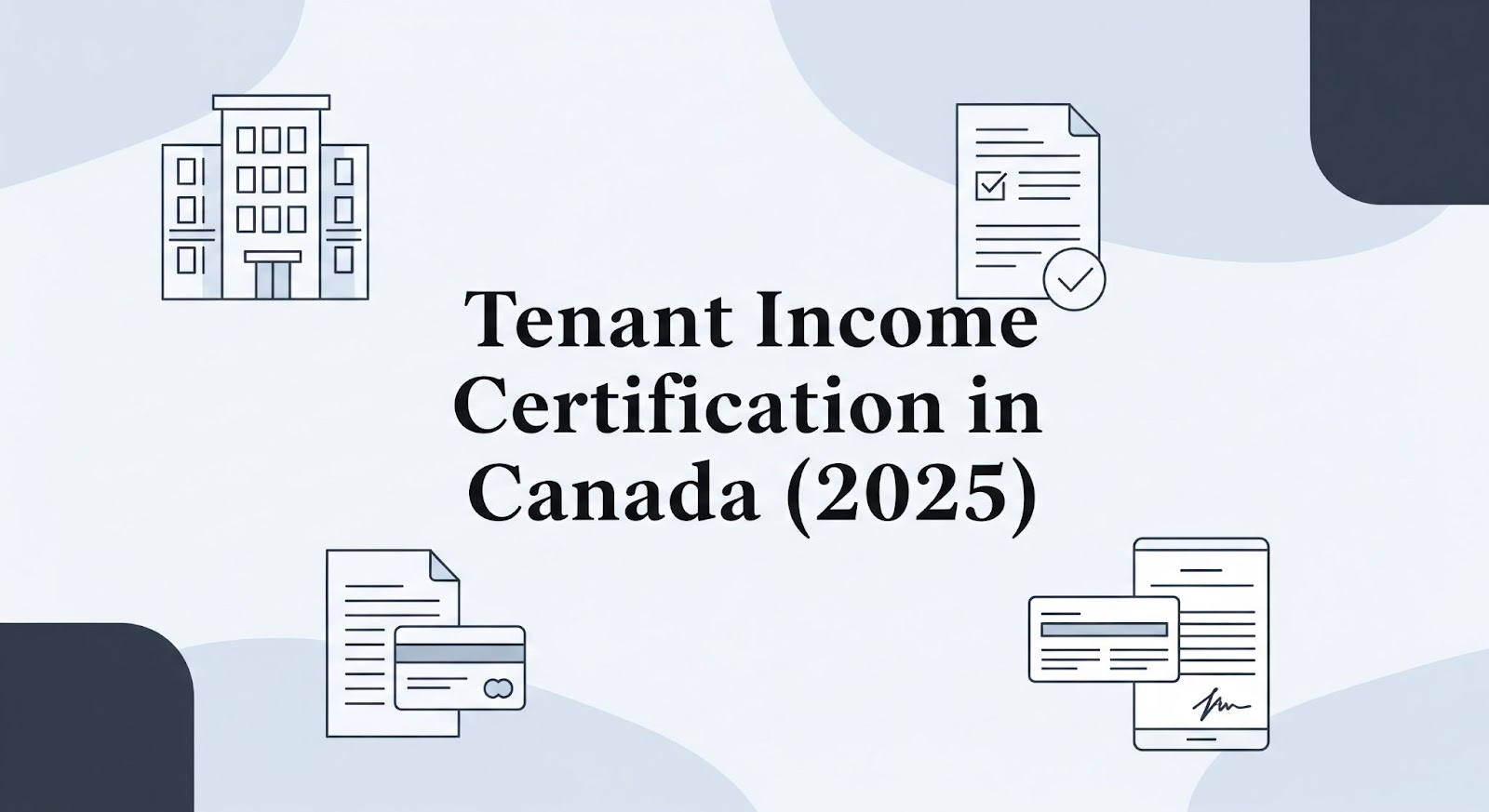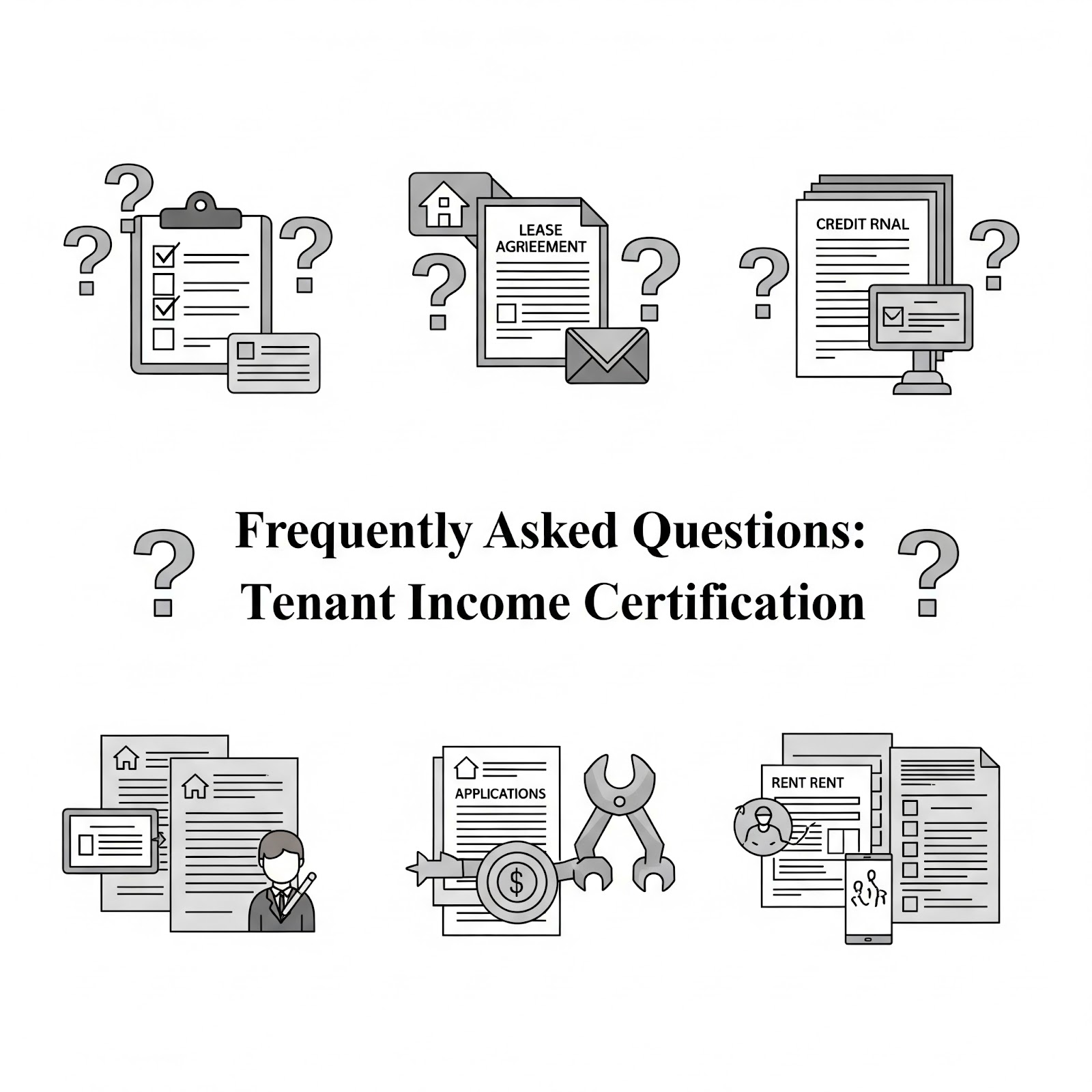


In 2025, finding an apartment or a room for rent in Canada is more challenging than ever before. Since rent rates in Canada are high at an average of $2,250/month in major metros and landlords are growing more discriminating, the process of getting tenants to complete tenant income certification in Canada has become the biggest step in the renting process in Canada.
In urban centres, in excess of 63 per cent of landlords necessitate proof of income for rent precedings executing a lease, as per a 2024 CMHC report. The need is particularly acute in such provinces as Ontario and British Columbia, where the income to rent ratio Canada is actively examined more carefully in the post-pandemic period.
What then is income certification? What documents required for tenant screening should you have? And what role is there to online services such as TenantPay to differentiate you in front of competitors? Let us go through the basics.
Gone are the days when stating your job title and expected salary was enough. In today’s rental climate, landlords and property managers need assurance that:
That’s why proof of income for renting in Canada is typically non-negotiable. In many cases, tenants are required to submit:
Some landlords may also ask for co-signers or additional documentation if the tenant is a student or self-employed.
Tenant income certification in Canada refers to the formal process where a renter verifies their financial ability to meet monthly rent obligations. This often involves submitting documentation that meets legal and financial requirements, including:
Many landlords now use digital tenant screening platforms that automatically verify income data—so falsifying info is harder than ever.
If you're wondering how to show income for rent in Canada, here are the most widely accepted forms:
Can a landlord ask for income proof in Canada? Absolutely. In fact, it’s a legal and common part of tenant screening. However, they cannot demand access to your entire bank account history or force unreasonable documentation outside of proof directly related to rent payment ability. For more on your rights, visit Tenant Info from the Government of Canada.
These profiles may face rejections—even if they have the ability to pay rent reliably.
This is where a platform like TenantPay makes all the difference. Beyond rent payments, TenantPay helps renters build verified payment history and credit builder records by:
These records can act as non-traditional proof of income—helping students, gig workers, and new Canadians demonstrate financial reliability in ways banks or tax returns might not capture.
While other platforms charge processing fees or offer little return, TenantPay rewards renters with TenantPay Points every time they:
TenantPay Points are not like credit card rewards. They’re uniquely tied to rent payments—and can be redeemed through Giftbit Canada at over 109+ vendors, including Amazon, Tim Hortons, DoorDash, and more.
Plus, when you pay rent with a credit card, you stack TenantPay Points and your card’s points. That's two layers of rewards for doing something you're already doing.
More on that here: Giftbit Rewards for Canadians
Here are tips to improve your application and make income certification easier:
If you’re a student or new to Canada, let your on-time payment history speak for you.
✔ Recent pay stubs or bank deposit summaries
✔ CRA Notice of Assessment (latest year)
✔ Letter of employment or contract confirmation
✔ Bonus: TenantPay credit builder report
✔ Optional: Proof of savings or family support if income is low
This isn’t about jumping hoops—it’s about building a profile that says: “I’m reliable, financially stable, and a low-risk tenant.”
✔ Recent pay stubs or bank deposit summaries
✔ CRA Notice of Assessment (latest year)
✔ Letter of employment or contract confirmation
✔ Bonus: TenantPay credit builder report
✔ Optional: Proof of savings or family support if income is low
This isn’t about jumping hoops—it’s about building a profile that says: “I’m reliable, financially stable, and a low-risk tenant.”
In 2025, proof of income for renting in Canada is just as important as the income itself. Whether you're a student, freelancer, or full-time employee, how you present your financial story can make or break your rental application.
With tools like TenantPay, you not only simplify rent payments—you build trust, reputation, and long-term creditworthiness.
Ready to Make Rent Work for You?
🚀 Start building your credit
🎯 Earn rewards just for paying rent
🔐 Pay securely—your way
👉 Book a Demo with TenantPay today and take control of your rental journey.

It’s the formal process of verifying a renter’s financial capacity to pay rent. This includes submitting documents like pay stubs, bank statements, or tax returns to confirm stable income.
You can submit pay stubs, CRA tax documents, direct deposit histories, or employment verification letters. Gig workers can include invoices and deposit records.
Yes. Landlords are legally allowed to request income proof. However, they must stay within legal guidelines and cannot ask for unnecessary personal financial data.
Increasingly, yes. Platforms like TenantPay offer digital rent history and credit builder tools, which are becoming widely accepted by modern landlords.
Yes, if the deposits are consistent and clearly linked to income sources. Screenshots and summaries from banking apps can be submitted.
Yes, especially if you use a platform like TenantPay that reports to Equifax and RentCheck. It proves you’re reliable, even if your job is non-traditional.
You earn them for paying rent responsibly (e.g., on time, via auto-pay, in advance). You can redeem them for rewards at major Canadian brands via Giftbit.
Yes! TenantPay supports Visa, Mastercard, AMEX, Interac, and over 20+ crypto options—while still earning you TenantPay Points.
Use a rent payment platform like TenantPay that reports to credit bureaus and offers consistent reward incentives for on-time payments.
Visit CMHC Tenant Guide for federal tenant guidelines and renter protections.